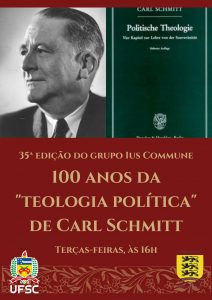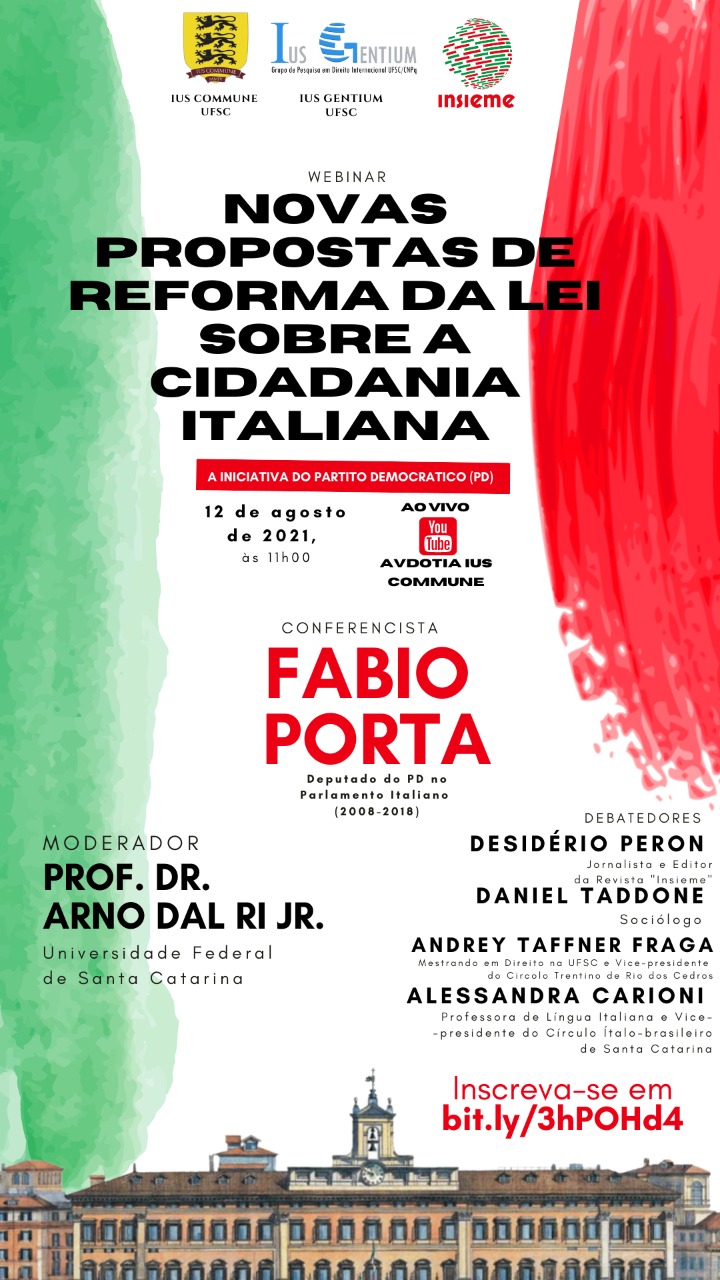35th Edition | Module 2022.1 – 100 years of “Political Theology” by Carl Schmitt

The Ius Commune – Interinstitutional Group on the History of Legal Culture – UFSC/CNPq, coordinated by Profs. Drs. Arno Dal Ri Jr., Caetano Dias Corrêa and Diego Nunes, invites the entire academic community to participate in the 35th module of discussions entitled The 100 years of “Political Theology”, by Carl Schmitt.
The present edition of Grupo Ius Commune will address the classic work “Political Theology”, written by Carl Schmitt in 1922. The study will contemplate the author’s main ideas in relation to the concepts of sovereignty, secularization and the foundations of the modern conception of state, emphasizing always the relationship of the points dealt not only with theology, but also with the reality in which we are inserted.
Previous reading of the base and complementary texts available is expected. To access the bibliography, just click on this link and access our Drive:
https://drive.google.com/drive/folders/1e9NuRKaItnFB72b_QvalXj8SX3Nrx7rL?usp=sharing
A certificate of participation will be awarded to those who participate in 75% of the study group meetings. The module’s opening meeting will be on 05/24 at 4 pm, and other meetings will continue to take place weekly, on Tuesdays, at the same time.
All meetings will take place in room 005 of the UFSC Legal Sciences Center. We count on the participation of all! See you soon!
SCHEDULE OF MEETINGS AND READINGS
1st meeting (May 24, 2022) — Presentation of the group, organization of meetings and introduction to the module topic.
2nd meeting (May 31, 2022) — First chapter of the work “Political Theology”.
3rd meeting (June 07, 2022) – Second chapter of the work “Political Theology”.
4th meeting (June 14, 2022) — Third chapter of the work “Political Theology”.
5th meeting (June 21, 2022) — Fourth chapter of the work “Political Theology”.
6th meeting (June 28, 2022) — The polemic with Peterson: Political Theology II.
Further Reading: Erik Peterson (The monotheism as a political problem); Leonardo Carrilho Jorge (The Theological-Political Problem: a dialogue between the jurist Carl Schmitt and the theologian Erik Peterson).
7th meeting (July 5, 2022) — Uses of Agamben: Homo Sacer, vol 1, part 1 – logic of sovereignty, p. 21-69.
8th meeting (July 12, 2022) — Uses of Mbembe: Necropolitics Essay.
9th meeting (July 19, 2022) — The revision of the Nomos da Terra: 4 first subtitles of ch. 1, pgs. 35 – 77.













